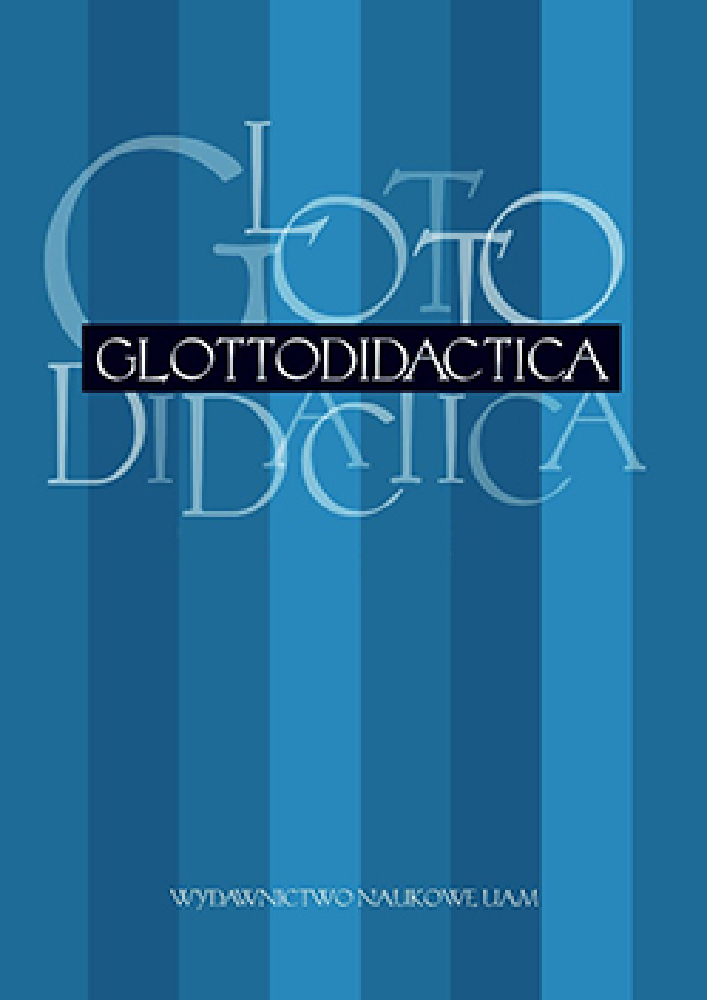Abstract
The aim of this paper is to justify the assumption that understanding is the essence of learning. From the constructivist viewpoint understanding is a complex mental and social process that involves decoding the symbolic message received from others and then interpreting and assigning a personal meaning to that message. Since personal background largely determines how the message will be understood it is important that the development of the learning environment encourages understanding from multiple perspective. Therefore the learning process should be based on techniques drawn from the constructivist’s epistemological assumptions, e.g., construction of intersubjective perspective, situated cognition in authentic life contexts and collaborative learning environment.References
Anderson, J. R., 1996. Kognitive Psychologie. Heidelberg: Spektrum.
Beaugrande, R.-A. de/Dressler, W.U., 1981. Einfiihrung in die Textlinguistik. Tübingen: Niemeyer.
Bruner, ]., 1983. Child's talk: Learning to use language. New York: Niemeyer.
Johnson-Laird, P.N., 1989. Mental model. In: M.I. Posner (Hrsg.): Foundations o f cognitive science. Cambridge, MA.: MIT Press, 467-499.
Glasersfeld, E. von, 2003. Konstruktion der Wirklichkeit und des Begriffs der Objektivität. In: H. Gumin/H. Meier (Hrsg.): Einführung in den Konstruktivismus. München: Piper, 9-49.
Hörmann, H., 1994. Meinen und Verstehen. Grundzüge einer psychologischen Semantik. Frankfurt am Main: Suhrkamp.
Hymes, D., 1971. On Communicative Competence. Philadelphia: University of Pennsylvania.
Kintsch, W., 1974. The representation o f meaning in memory. Hillsdale: Erlbaum.
Levelt, W.J.M., 1999. Producing spoken language: a blueprint of the speaker. In: C.M. Brown/P . Hagoort (Hrsg.), The neurocognition o f language. Oxford: Oxford University Press, 83-122.
Lewicka, G., 2004. Zu einigen Problemen der Giottodidaktik aus der Perspektive der konstruktivistisch-
systemischen Kognitionstheorie. In: Kwartalnik Neofilologiczny LI/3, 257-262.
Lewicka, G., 2007a. Glottodydaktyczne aspekty akwizycji języka drugiego a konstruktywistyczna teoria uczenia się. Wrocław: ATUT.
Lewicka, G., 2007b. Zum Konzept des diskursiven Zweitspracherwerbs. In: B. Stein (Hrsg.), Wege zu anderen Sprachen und Kulturen. Hamburg: Dr. Kovać, 151-158.
Lewicka, G., 2007c. Prozeduren als Diskurshandlungen im giottodidaktischen Prozess. In: Glottodidactica XXXIII, 21-28.
Lewicki, R. /Lewicka, G., 1999. Didaktisch-methodische Konzeption zum Lehrwerk. In: Na und? Poradnik dla nauczyciela. Testy. Materialy do kopiowania. Warszawa: PWN, 7-18.
Maturana, H., 1970. Biology o f cognition. Urbana. Illinois: University of Illinois.
Maturana, H./Varela FJ., 1987. Der Baum der Erkenntnis. Bern, München, Wien: Scherz.
Piaget, 1948. Le langage et la pensee chaz l'enfant. Neuchâtel: Delachaux u. Niestl6.
Roth, G., 1996. Die Konstruktion von Bedeutung im Gehirn. In: SJ. Schmidt (Hrsg.) Gedächtnis: Probleme und Perspektiven der interdisziplinären Gedächtnisforschung. Frankfurt am Main: Suhrkamp, 360-370.
Rusch, G., 1992. Auffassen, Begreifen, Verstehen. In: SJ. Schmidt (Hrsg.): Kognition und Gesellschaft. Der Diskurs des Radikalen Konstruktivismus 2. Frankfurt am Main: Suhrkamp, 214-256.
Stern, D. N.,1985. The interpersonal world o fth e infant. New York: Basic Books.
License
Authors
Authors of texts accepted for publication in Glottodidactica are required to complete, sign and return to the Editorial team’s office the Agreement for granting a royalty-free license to works with a commitment to grant a CC sub-license.
Under the agreement, the authors of the texts published in Glottodidactica grant Adam Mickiewicz University in Poznań a non-exclusive, royalty-free license and authorize the use of Attribution-NoDerivatives 4.0 International (CC BY-ND 4.0) Creative Commons sub-license.
The authors retain the right to the free disposal of the work.
Users
Interested Internet users are entitled to use works that have been published in Glottodidactica since 2016, under the following conditions:
▪ attribution – obligation to provide, together with the distributed work, information about the authorship, title, source (link to the original work, DOI) and the license itself.
▪ no derivatives – the work must be preserved in its original form. Without the author's consent, it is not possible to distribute the modified work in the form of translations, publications, etc.
Copyrights are reserved for all texts published before 2016.
Miscellaneous
Adam Mickiewicz University in Poznań retains the property right as a whole (layout, graphic form, title, cover design, logo etc.).
Privacy statement
The names and email addresses published on this journal site will be used exclusively for the purposes declared by this journal and cannot be used for any other purpose or by any other party.




